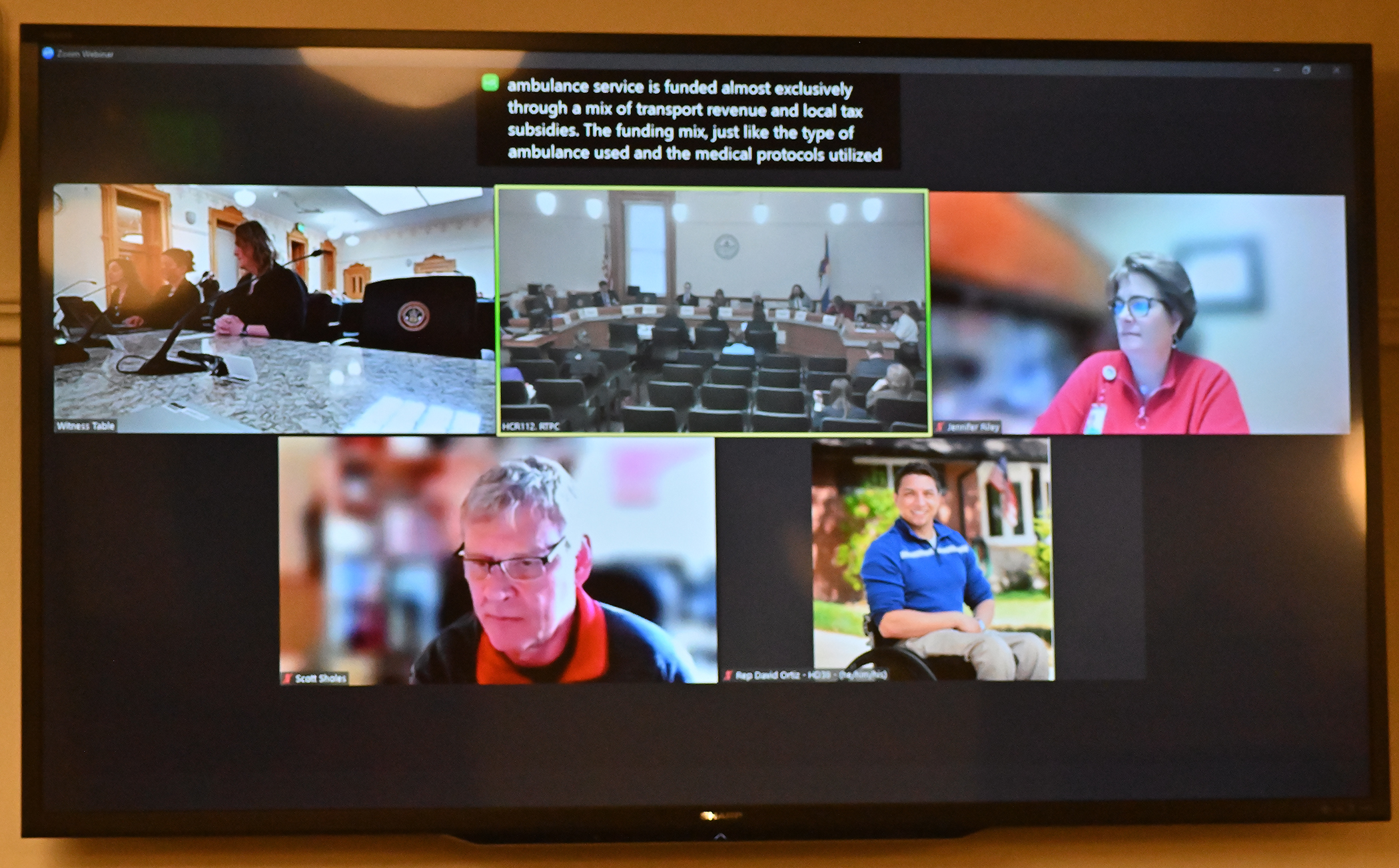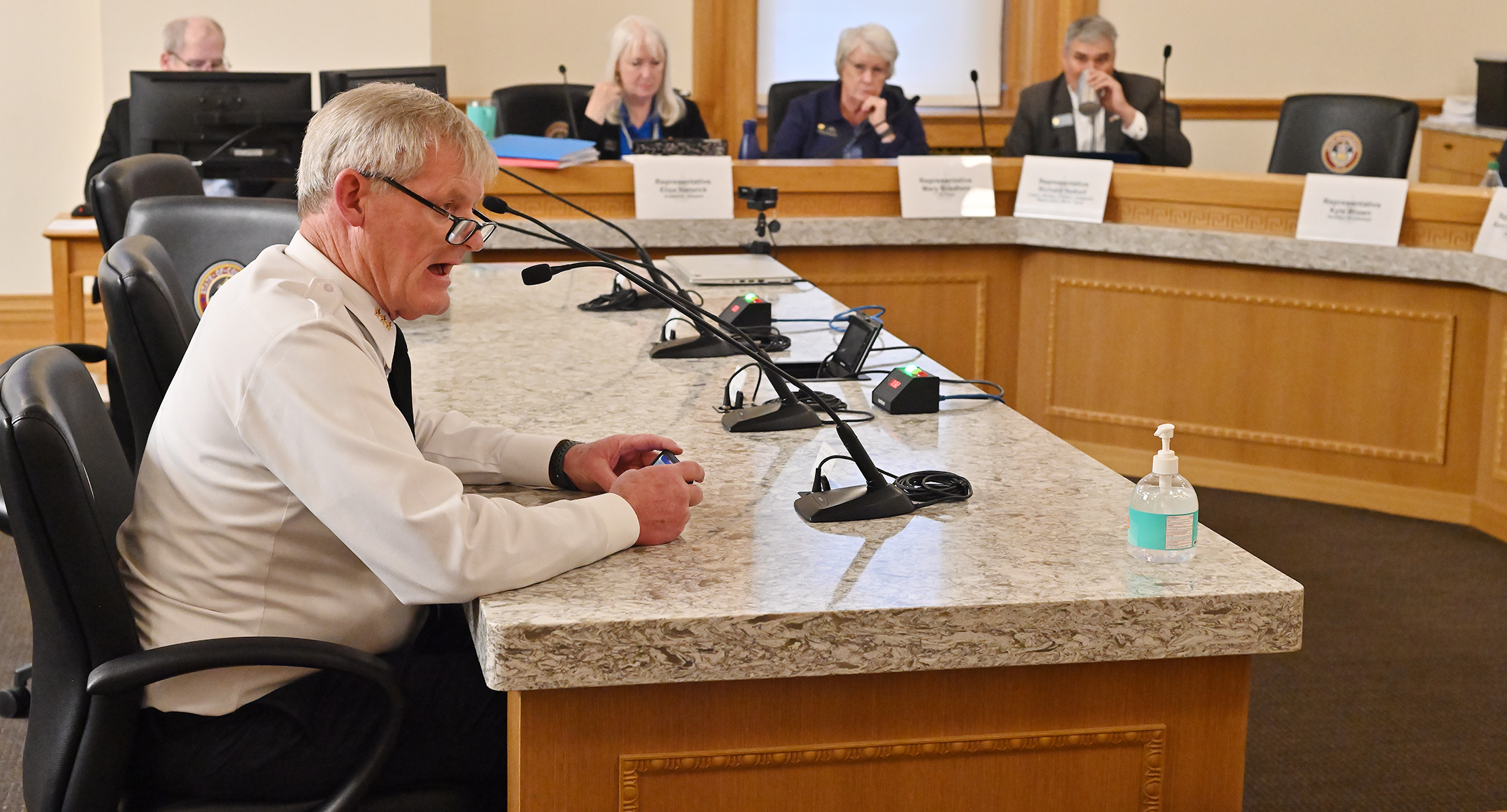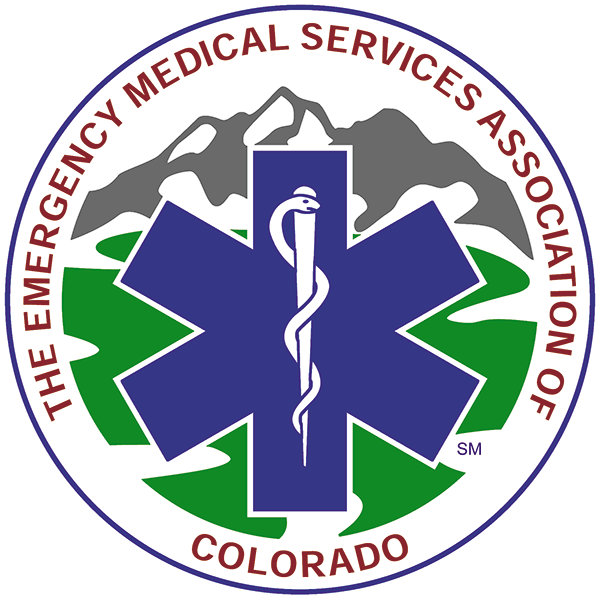What do your salary, safe ambo tires, staffing and paid continuing professional education have in common?

What do your salary, safe ambo tires, staffing and paid continuing professional education have in common?
By Howard M. Paul, Communications Director

The answer just might be Colorado House Bill 24-1218. What, you ask?
EMSAC believes so and on Tuesday, February 27, EMSAC and others testified before the Colorado House Committee on Health & Human Services. Our EMS community was well represented by Tina Wells, GMR government affairs south region; EMSAC President Scott Sholes, Crested Butte FPD CEO Sean Caffrey; EMSAC Advocacy Committee Chairman Tim Dienst, CEO of Ute Pass Regional Health Services District; Kirby Clock, chief of Delta County Ambulance District; Mike Donner, founder of Apex Paramedics, CEO Jennifer Riley of Memorial Hospital in Craig as well as Isabel Cruz from the Colorado Consumer Health Initiative.
Insurers opposed
The only testimony in opposition was voiced by Jason Hopfer from the Colorado Association of Health Plans. His concern was the bill requires transport rates to be set locally “and without oversight;” hence there would be no effective means of preventing an ambulance service from charging “as much as they want.” This, however, is currently prevented in two ways. In the case of private ambulance services, the rates are set in the contract with the contracting entity, be it a municipality, county or special district; in the case of a public agency, rates are set by the governing body’s elected officials, be they county commissioners, city councilors or elected boards of directors of special districts.
HB24-1218—Ground Ambulance Service Rates & Billing—if passed, in favorable form, may be “an” answer to solving the decades-long underfunding crisis in EMS. 1218 would finally require health insurers to pay bills issued by ambulance services, directly to the ambulance service and not to their customer (our patients), or just not pay the bill at all. This is in exchange for eliminating “balance billing” by all Colorado ambulance services, 75% of which are public entities (municipal, county and special district EMS agencies).

HB 24-1218 would require insurance carriers to pay the ambulance rates that cities, counties, and publicly accountable officials set for their communities. This is critical because, as noted in the EMS System Sustainability Task Force Phase I Report issued last September, “no payer pays anywhere near the cost-of-service provision, which is why EMS is increasingly transitioning to a publicly funded model with tax subsidies, including but not limited to local property and sales taxes to fund and sustain ambulance operations - provided the taxpayers consent to higher taxes.” To say it another way, when insurance carriers fail to pay the rates that cities, counties, and other public officials set for the ambulance agencies operating in their communities, they are making decisions that can directly impact local tax spending and access to high-quality ambulance service. HB 24-1218 protects taxpayers and helps preserve access to EMS.
Protecting patients
HB 24-1218 would also help take patients out of the middle of billing disputes between ambulance agencies and insurance providers. The existing balance billing law in Colorado prohibits private ambulance agencies from issuing balance bills for emergency transports. However, only 154 of Colorado’s 205 ambulance agencies (75%) are publicly-funded agencies that can still balance bill patients when insurance carriers fail to pay their locally set rates. No health care provider wants to balance bill patients, ever. HB 24-1218 would enable all ambulance agencies to end the practice of balance billing without increasing taxpayer subsidies.
HB 24-1218 would require insurance carriers to pay the ambulance rates that cities, counties, and publicly accountable officials set for whatever agency is providing service in the community. Creating a reimbursement model would shield taxpayers, help protect community access to ambulance service, and prevent the need for balance billing, which would be prohibited by all ambulance agencies under HB 24-1218.
Solution has been elusive
EMSAC has been working on this problem for years, offering numerous solutions. The insurance companies have been reluctant to come to the table to discuss solutions to the problem.
However, a reimbursement model like this goes hand-in-hand with balance billing protections because of the unique ambulance funding model. Emergency ambulance service is funded almost exclusively through a mix of transport revenue and local tax subsidies that vary from community to community.

Colorado’s current balance billing “solution” isn’t a solution at all – for patients, taxpayers, or ambulance services. HB 24-1218 will change that. Insurance carriers will say this will increase their costs, but reports issued by California, Louisiana, and Texas (states that passed similar legislation last year) prove otherwise. Industry-wide, ambulance bills account for 0.2% of health insurance-covered costs. HB24-1218 is a win-win-win proposition as it protects patients, dictates that ambulance services are paid and protects taxpayers from having to further subsidize EMS to backfill unpaid costs.
Due to the number of proposed amendments the bill was laid over, for action only.
